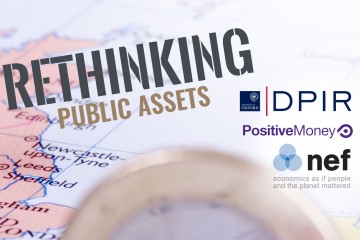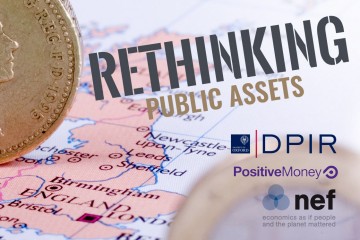
Rethinking public assets: land and capital
Rethinking public assets: land and capital
Play Episode
Pause Episode
Mute/Unmute Episode
Rewind 10 Seconds
1x
Fast Forward 30 seconds
00:00
/
1 hour, 13 minutes.
Subscribe
Share
RSS Feed
Share
Link
Embed
Download file | Play in new window | Duration: 1 hour, 13 minutes.The UK has a crucial role to play in the debate over how the EU should be reformed. This session engages in a conversation as to why and how.

Rethinking public assets: innovations in money
Rethinking public assets: innovations in money
Play Episode
Pause Episode
Mute/Unmute Episode
Rewind 10 Seconds
1x
Fast Forward 30 seconds
00:00
/
56 minutes.
Subscribe
Share
RSS Feed
Share
Link
Embed
Download file | Play in new window | Duration: 56 minutes.The UK has a crucial role to play in the debate over how the EU should be reformed. This session engages in a conversation as to why and how.

Rethinking public assets: managing wealth
Rethinking public assets: managing wealth
Play Episode
Pause Episode
Mute/Unmute Episode
Rewind 10 Seconds
1x
Fast Forward 30 seconds
00:00
/
1 hour, 8 minutes.
Subscribe
Share
RSS Feed
Share
Link
Embed
Download file | Play in new window | Duration: 1 hour, 8 minutes.The UK has a crucial role to play in the debate over how the EU should be reformed. This session engages in a conversation as to why and how.

Rethinking the public wealth of nations
Most governments know a lot about their debt but little about their assets. In the wake of the 2008 financial crisis, as governments mobilized to manage their public debt, they largely ignored their public assets. Some countries, such as the Baltic states and Portugal, took steps to appraise their wealth, but most did not. The United States, for example, chose not to participate in a 2011 initiative by the Organisation for Economic Cooperation and Development (OECD) to evaluate the size and composition of state-owned firms in member countries. But a better understanding of public commercial assets — defined as government property that generates profit, such as state-owned firms, real estate, and forests — could help yield significant amounts of wealth …

UK Housing: Fixing the ‘doom loop’ between land value, inadequate supply and insecure financing
In this article, I argue that there exists a dangerous positive feedback loop between land value, embodied in house prices, and the banking system which lies at the heart of modern economies. In response, policies are required to capture more land value for the public good, perhaps through alternative forms of taxation or the creation of public land banks, to help minimise speculative investment in an effort to reduce rising inequality. Different types of banks focused on business lending may also be required. The UK and German economies are compared to shed light on alternative policies. Andrew Haldane, the Bank of England’s free-thinking Chief Economist, characterised the relationship between modern banks and the state as a ‘doom loop’. Once banks …

Who creates money?
If you ask a person in the street ‘how is money created?’ they will probably look at you blankly. A couple might hazard a guess and say the Bank of England. There’s a Chinese proverb that says: ‘The fish is the last to know water.’ Money is all around us, playing a role in almost everything we do, yet it can be difficult to understand. We are swimming in a society that depends on money—that’s become obsessed with money—but few of us know where it comes from or how it actually works. A landmark paper[1] released by the Bank of England in March 2014 explains how private banks create the vast majority of money we use when they make loans. …

Reconsidering public wealth
Politicians often fail to understand the fundamental difference between household economics and the national economic system. The difference exists because households have to manage as best they can on what they can earn or borrow, whereas Governments have it within their power to create new money. A recent poll of Parliamentarians, commissioned by Positive Money, asked questions as to how new money is created. One out of ten respondents gave the right answer, two said they did not know and the remaining seven gave the wrong answer. This is not surprising. It is probable that less than 10% of the public understands money creation. As Henry Ford remarked “It is well enough that people of the nation do not understand …

New Series: Rethinking Public Assets
Five years after the financial crisis eased, sovereign debt, budget deficits and austerity politics still dominate the headlines. Yet despite deep cutbacks in many countries, governments still remain the largest asset-owner in most economies. They just don’t know it. Many of these assets exist beyond the balance sheet in the form of public land and real estate, state-owned enterprises and sovereign wealth. There are a number of implications to this hidden value. For instance, radical change in the way we understand and manage state assets could help tackle some pressing social and economic policy challenges. Clearer accounting of the ownership of and yield from public assets could augment public revenues, empowering the government to address public and household debt, income …









